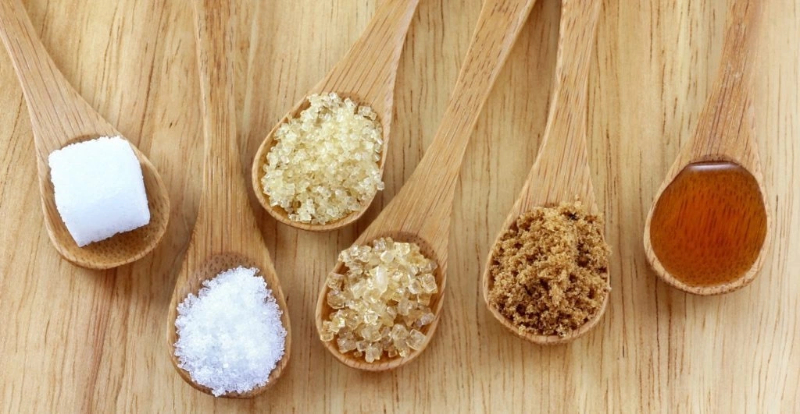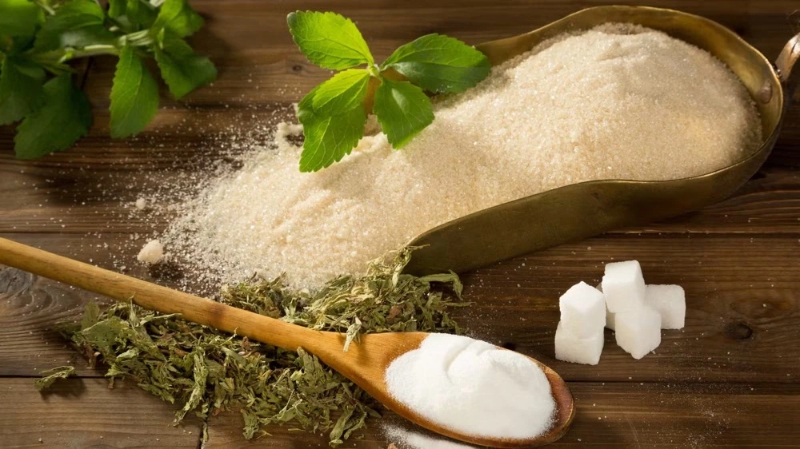







Content Menu
● Sucralose Disrupts Gut Microbiome Balance
● Sucralose and Immune Function Impairment
● DNA Damage and Potential Cancer Risks
● Metabolic Dysregulation and Blood Sugar Effects
● Sucralose's Impact on Weight and Appetite
● Toxic Compounds from Heating Sucralose
● Reproductive Health Concerns
>> 1. Is sucralose safe for everyday consumption?
>> 2. Can sucralose cause cancer?
>> 3. Does sucralose affect blood sugar and diabetes risk?
>> 4. Are there concerns about sucralose and weight gain?
>> 5. What are safer alternatives to sucralose?
Sucralose is a synthetic, calorie-free artificial sweetener approximately 600 times sweeter than table sugar and widely used in food, beverage, and pharmaceutical products. Marketed as a safe sugar alternative, sucralose has been consumed by millions globally to reduce calorie intake and manage blood sugar levels. However, emerging scientific evidence from numerous recent studies raises significant concerns about the safety of sucralose, indicating multiple potential adverse health effects. This article delves into the reasons why sucralose may be bad for your health, examining its impact on gut microbiota, metabolism, immune function, and the risk of chronic diseases, while maintaining a natural flow with repeated references to "sucralose."

Sucralose is produced by chemically modifying sugar, replacing three hydroxyl groups in sucrose molecules with chlorine atoms. This modification renders it non-digestible, allowing sucralose to pass through the digestive system without providing calories. Its intense sweetness and heat stability have made it popular for use in various processed foods and beverages, often as a substitute for sugar in diet or low-calorie formulations.
One of the major concerns about sucralose consumption is its detrimental effect on the gut microbiome, the diverse community of microorganisms playing a crucial role in digestion, immune response, and overall health. Research consistently shows that sucralose consumption alters the gut microbiota's composition and reduces beneficial bacteria populations. This disruption, known as gut dysbiosis, has been linked to compromised gut barrier integrity, which can lead to "leaky gut" syndrome. This condition allows toxins and harmful bacteria to translocate into the bloodstream, evoking chronic low-grade inflammation implicated in multiple diseases.
Studies indicate that even doses at or below the acceptable daily intake (ADI) of sucralose can induce these microbiome changes. Moreover, maternal consumption of sucralose during pregnancy has been shown to impact offspring gut health adversely, leading to impaired intestinal development and increased risk of metabolic and inflammatory diseases later in life. The reduction of butyrate-producing bacteria—those responsible for producing a beneficial short-chain fatty acid important for colon health—further underscores sucralose's negative gut effects.
Recent scientific findings have revealed that sucralose may interfere with immune system efficiency, especially in cancer patients receiving immunotherapy. A study in patients with melanoma and non-small cell lung cancer found that high sucralose consumption correlated with poorer responses to immunotherapy and decreased survival rates. Sucralose-induced alteration of gut bacteria increased the prevalence of microbes that degrade arginine, an amino acid critical for T cell function. As a result, this compromised the immune cells' ability to fight tumors effectively.
This disruption of immune function due to sucralose raises concerns about the sweetener's broader implications for immune health, especially in individuals with weakened or compromised immune systems.
Laboratory research has indicated that sucralose metabolites, such as sucralose-6-acetate formed in the gut, can cause DNA strand breaks, suggesting potential genotoxic effects. DNA damage can initiate mutations and promote the development of cancer. Additionally, sucralose has been observed to increase inflammation and oxidative stress markers, both contributing factors in carcinogenesis.
Animal studies further reveal that sucralose consumption is associated with increased size and number of colon tumors, potentially due to enhanced inflammatory responses and compromised gut barrier function. While direct causal evidence in humans is still emerging, these findings warrant caution regarding prolonged sucralose intake.
Contrary to its earlier reputation as a beneficial sugar substitute for diabetics, sucralose has demonstrated adverse metabolic impacts. Consumption of sucralose has been linked to impaired insulin sensitivity, leading to higher blood glucose levels after meals. This effect undermines sucralose's use in glucose management and may increase the risk of developing type 2 diabetes.
Isolated consumption of sucralose does not elicit the same response; however, studies show that when sucralose is consumed in conjunction with carbohydrates, it impairs glucose metabolism and lowers insulin effectiveness. This disruption to hormonal regulation also impacts appetite control centers in the brain, sometimes increasing hunger and food intake, which may counterintuitively contribute to weight gain.

Despite being a non-caloric sweetener, sucralose can paradoxically contribute to weight gain and obesity. This is partially due to its effects on the gut microbiota and the brain's regulation of hunger and satiety hormones. Research involving healthy adults showed that sucralose increased blood flow to the hypothalamus, a brain region involved in appetite regulation, which correlated with increased hunger sensations.
Moreover, sucralose consumption might alter reward pathways related to sweet taste, leading individuals to compensate by consuming more calories from other sources. These effects challenge the notion that sucralose is a helpful tool for weight management.
While sucralose is widely regarded as heat stable, recent research has found that high-temperature cooking or baking with sucralose can lead to the breakdown of the molecule, producing potentially harmful chlorinated compounds like chloropropanols. These toxic byproducts raise concerns about the safety of sucralose in processed and heated foods, with possible implications for liver and kidney health upon repeated exposure.
Animal studies also suggest that sucralose may have adverse effects on male reproductive health. Research in mice demonstrated sucralose-induced oxidative stress and impaired autophagy in testicular cells, leading to decreased cell viability and reproductive dysfunction. These findings emphasize the need for further investigations into sucralose's impact on fertility and reproductive physiology.
Despite its widespread use as a sugar substitute, sucralose poses several health risks supported by increasing scientific evidence. These include detrimental effects on the gut microbiome, impaired immune responses, potential DNA damage, metabolic dysregulation, appetite stimulation, and formation of toxic compounds during heating. Furthermore, sucralose may negatively impact reproductive health and the effectiveness of cancer treatments. Consumers should exercise caution in sucralose consumption and consider safer natural alternatives such as stevia, monk fruit, and erythritol. Continued research is essential to fully elucidate sucralose's long-term health implications and guide public health recommendations.

While approved by regulatory agencies, emerging research suggests that frequent sucralose intake may disrupt gut health and metabolism. Limiting consumption is advisable pending further studies.
Research shows sucralose metabolites can damage DNA and increase inflammation, potentially raising cancer risk, though definitive evidence in humans remains limited.
Yes, sucralose consumption has been linked to impaired insulin sensitivity and glucose metabolism, which may increase the risk of type 2 diabetes.
Despite being calorie-free, sucralose may increase hunger and affect gut bacteria, potentially promoting weight gain or difficulty in managing weight.
Natural sweeteners like stevia, monk fruit, and erythritol generally have better safety profiles and do not exhibit the adverse effects linked to sucralose.
[1](https://www.reuters.com/business/healthcare-pharmaceuticals/health-rounds-artificial-sweetener-consumption-linked-less-effective-cancer-2025-08-01/)
[2](https://usrtk.org/sweeteners/sucralose-emerging-science-reveals-health-risks/)
[3](https://pmc.ncbi.nlm.nih.gov/articles/PMC12025785/)
[4](https://mindstreamintegrative.com/blog/rethinking-artificial-sweeteners-the-hidden-risks-of-sucralose-and-artificial-sweeteners/)
[5](https://pmc.ncbi.nlm.nih.gov/articles/PMC10971371/)
[6](https://www.cnn.com/2025/03/29/health/artificial-sweetener-sucralose-hunger-signals-wellness)
[7](https://www.endocrine.org/news-and-advocacy/news-room/endo-annual-meeting/endo-2025-press-releases/chen-press-release)
[8](https://www.dzd-ev.de/en/press/press-releases/press-releases-2025/artificial-sweeteners-stimulate-hunger-signals-in-the-bra)
[9](https://www.nature.com/articles/s42255-025-01227-8)
[10](https://www.fda.gov/food/food-additives-petitions/aspartame-and-other-sweeteners-food)
